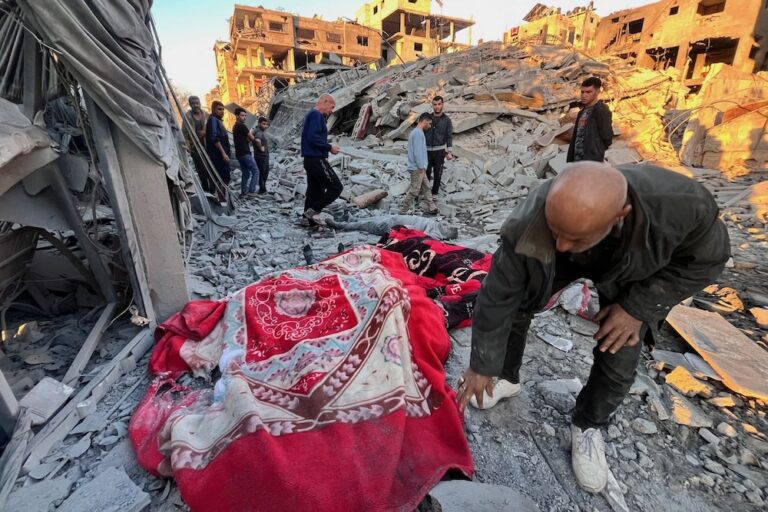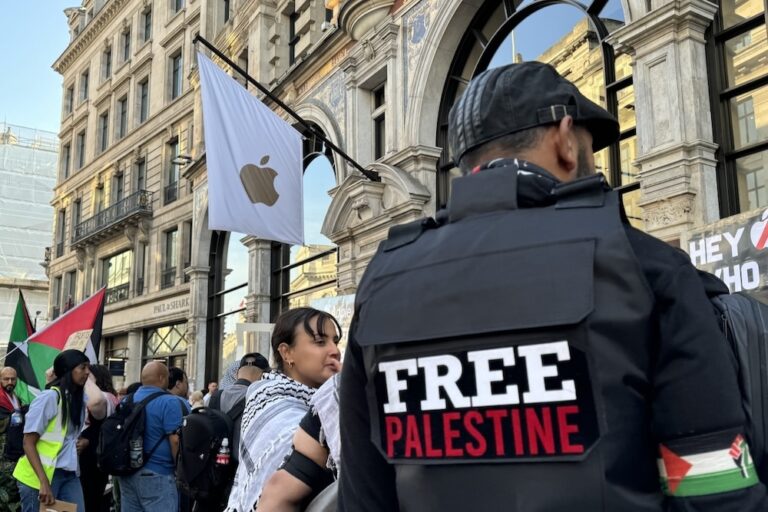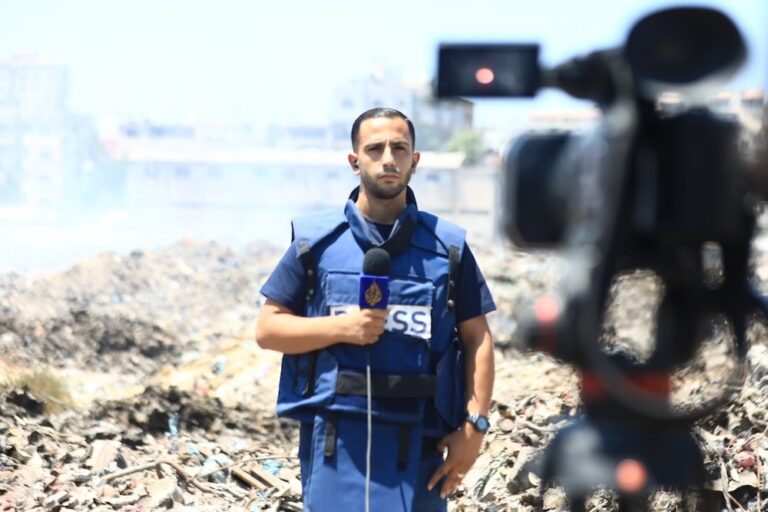(RSF/IFEX) – Following the latest Palestinian suicide bombings in Israel, journalists have been banned from six autonomous Palestinian towns in the West Bank (Bethlehem, Nablus, Ramallah, Jenin, Tulkarem and Qalqiliya) that have been declared “closed military zones” by the Israeli army (see IFEX alert of 27 June 2002). “We cannot help thinking that, rather than […]
(RSF/IFEX) – Following the latest Palestinian suicide bombings in Israel, journalists have been banned from six autonomous Palestinian towns in the West Bank (Bethlehem, Nablus, Ramallah, Jenin, Tulkarem and Qalqiliya) that have been declared “closed military zones” by the Israeli army (see IFEX alert of 27 June 2002). “We cannot help thinking that, rather than protecting journalists, this measure is aimed at conducting military operations hidden from public scrutiny,” said RSF Secretary-General Robert Ménard. “All the more so since journalists based in these towns are also prevented from working by the curfew. Once again, these measures risk generating all kinds of rumours and disinformation.”
RSF also called on the Israeli authorities to immediately release six Palestinian journalists who have been held for the past two months. “These arrests were completely arbitrary,” Ménard said. “If these journalists have done something wrong, then the authorities should say what it is. No evidence has been presented to show they have any link to a terrorist organisation. We remain extremely concerned about their fate because they are being held in very bad conditions.”
The six journalists – Khalid Ali Zwawi and Maher al-Dessuki, of the Ramallah-based Al-Quds Educational TV, Kamal Ali Jbeil, of the daily “Al-Quds”, Hussam Abu Alan, a photographer for Agence France-Presse (AFP), Yusri el-Jamal, a Reuters sound man, and Ayman el-Kawasmi, head of the local radio station El Horriya – were arrested between 15 and 30 April 2002 and placed in preventive detention for three months.
Al-Dessuki, Ali Jbeil, Abu Alan and el-Jamal are being held at the Ofer detention camp near Ramallah in harsh conditions, sleeping on the ground in tents with several hundred other prisoners. Abu Alan needs special treatment for a head wound he received several years ago, but has not been able to get it. On 19 June, the Israeli Military Court rejected applications for the immediate release of el-Jamal and Abu Alan.
In addition to the ban on journalists from accessing the six towns, press freedom violations continue to be registered regularly.
On 10 June, Reuters photographer Nasser al-Shiokhy was beaten with a rifle butt by an Israeli soldier in Hebron as he was taking pictures of troops arresting Palestinians. The soldier hit him on the head and in the stomach, threatened him and confiscated some of his equipment.
Also on 10 June, Israeli soldiers occupied the Reuters office in Ramallah and barred five of the news agency’s journalists from entering. Only after the agency protested was one of them allowed in to get some equipment. The soldiers left the office the next day.
On 4 June, Reuters cameraman Hussan el-Titi and freelance Ala Badarneh came under Israeli army gunfire in Nablus as they were on their way to the Askar refugee camp. A bullet hit a window of their armoured vehicle, which was carrying a “press” sign, and another punctured a tire. After the agency complained, an army spokesperson said an inquiry would be undertaken.
On 31 May, Mashur Abu Eid, a reporter for the official Jordanian news agency Petra, was arrested and deported four days later for allegedly entering a closed military zone and resisting arrest (see IFEX alert of 7 June 2002).


